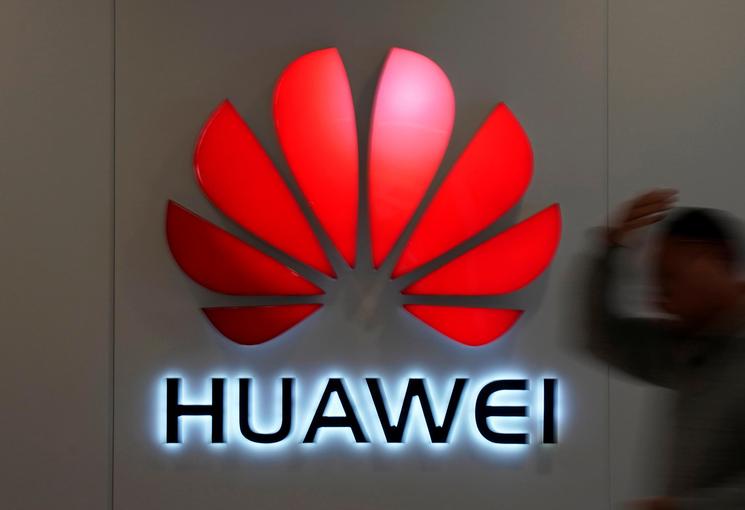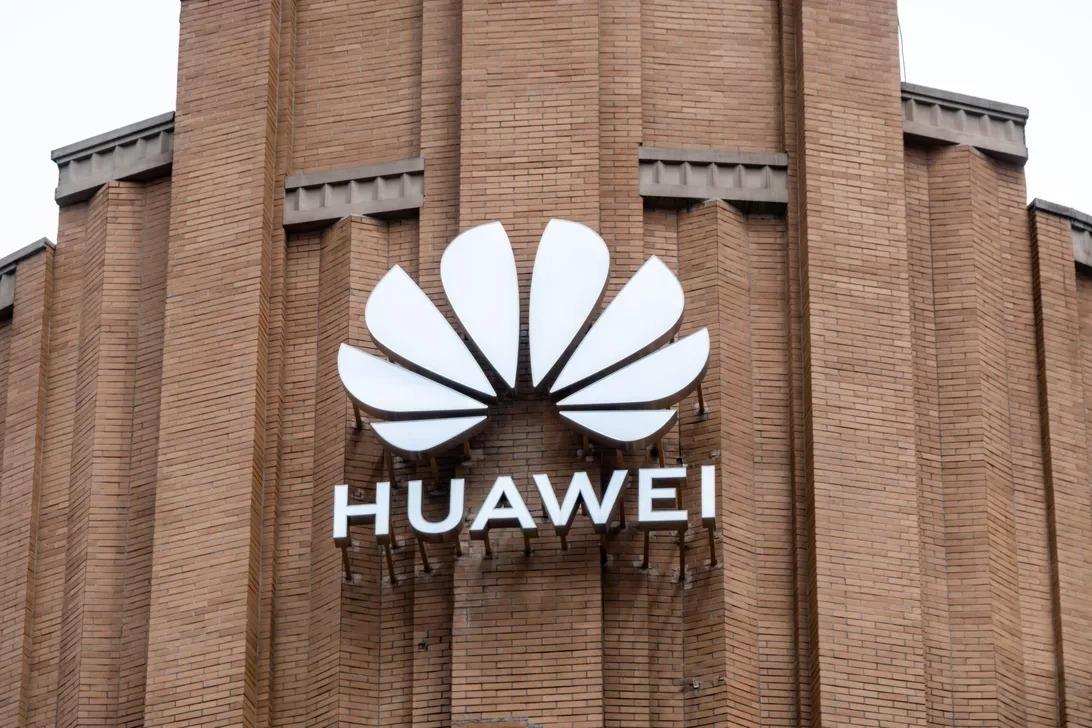The state-owned company ZTE and the private company Huawei have been in conflict for 30 years in China. It is the Jewish-American legal adviser of the company that sold ZTE to the United States, and there are constant observations among overseas Chinese that it was ZTE that sold Huawei to the United States.
ZTE (ZTE) is a state-owned enterprise that was developed by ZTE Semiconductor Co., Ltd., which was founded by Mr. Takashi Tate in 1985, was nationalized in 1996, and reached its current name in 1997.
Born in 1942, Kiyoshi worked at the Chinese government's voyage (space) 691 yard production site and was dispatched to the United States in the early 1980s to transfer technology. He became the production site chief of the 691 yard in 1985, and in the same year he was sent to Shenzhen to establish a joint venture between the continent and Hong Kong to lay the foundation for ZTE.
Even when it was nationalized in 1996, it started a new management style called "state-owned private management" through joint investment between Koten 691 Factory and Shenzhen Guangyu Industrial Group Corporation. Since then, ZTE has a complete backbone of the Chinese government.
Huawei, on the other hand, is a private company founded by Ren Zhengfei in Shenzhen in 1987.
Born in 1944, Ren Zhengfei enlisted in the PLA to escape the difficulties of the Cultural Revolution, but at that time he was assigned to the "Basic Architects" because his specialty at university was civil engineering. His first job was to help a project for a French construction company. Around 1983, Deng Xiaoping began reducing the PLA's millions (formally in 1985), and Ren Zhengfei was "dismissed" without any military rank and became a Nankai Oil rear-office service base in Shenzhen. I was assigned. However, the content of his work was not so interesting, and Huawei was founded by collecting 20,000 yuan (about 300,000 Japanese yen) by borrowing money from the surroundings.
ZTE started with semiconductors, but Ren Zhengfei had no knowledge of electronic communications, so he started his business with an emphasis on sales.
Eventually, ZTE and Huawei began to compete in bidding, etc., and with the help of the government, ZTE began to carry out business in some way. In 2003, in a bid for MTNL (Mahanagal Telephone Nigam) of India, ZTE, with the help of the government, sought out the internal circumstances regarding the technical level of Huawei and notified the Indian side, and ZTE succeeded in winning the bid.
The furious Ren Zhengfei became independent of Huawei's research department and began to engage in research and development fiercely. HiSilicon was born in this way (established in 2004).
HiSilicon President Niwanami himself wanted to devote himself to research and development as an engineer without being influenced by business development, so the two people agreed. HiSilicon remains one of Huawei's research divisions, so it's no wonder that HiSilicon doesn't sell its semiconductors to the outside world.
I know that if I sell it to the Chinese government, I will definitely go to ZTE. So, in the current situation, we haven't sold it yet.
In October 2011, ZTE hired Jewish-American Ashley Kyle Yablon as legal counsel for the US branch. However, Yablon, who was supposed to be hired to protect ZTE in case of trouble, browsed ZTE's "secret documents" with the excuse that he had to keep track of all the company's inside information in order to protect it.
At that time, it was discovered that ZTE was selling electronic devices banned by the United States to Iran through a fictitious company. When I pointed out that, ZTE's management asked Yablon to "don't make it public." When Yablon refused, ZTE said that Yablon's business activities were frozen.
So in May 2012, Yablon accused the FBI of ZTE's internal affairs, many non-Mainland Chinese media wrote. Some even have similar continental information.
According to Reuters, Yablon was also a legal counsel for Huawei.
Is there a story that unfolds so "cleanly (simply?)"?
Anyone would guess that Yablon, on the contrary, could be a spy hired by the US government. It's "too big".
Chinese media continues.
The recent arrest of Huawei CFO Meng Wanzhou is, in view of the flow so far, "shouldn't it be seen that ZTE has informed the United States?"
As proof of that, there is a company name "F7" in ZTE's secret document held by Yablon, and it seems that this is Huawei. At the end of 2010, "F7" had submitted a proposal to sell an American Hewlett-Packard computer to Iran's mobile communications company (MCI), a subsidiary of Iran's electronic communications company (TCI). There is a record. Huawei seems to have withdrawn its proposal in 2011, but there are many other inside information about Huawei. ZTE has informed the United States of such information as a judicial transaction, reports from Hong Kong's liberal media "Ringo Daily" and Chinese media in Washington or New York.


Japanese semiconductor experts also say that semiconductors researched and developed by HiSilicon will never be sold outside. As I wrote in the column "Huawei's brain HiSilicon is Qualcomm's beloved disciple?" "'''Huawei with a top-level semiconductor manufacturer'''" and praised HiSilicon, "HiSilicon does not sell outside. According to Huawei for Huawei. It's a chip for Huawei. If we start supplying such high-performance chips to other smartphone makers in China, both Qualcomm and MediaTek could quickly lose their market. " I'm saying.
One of the reasons why HiSilicon does not sell to the outside is the "30-year internal conflict" between ZTE and Huawei mentioned in this column.
President Xi Jinping, who is pushing the national strategy "Made in China 2025" as a turning point in national fate, is actually in a difficult situation due to such domestic "internal conflict".
Since it is a one-party rule system, it may be possible to see from the outside that it should be possible if Sassa, Huawei and its subsidiary HiSilicon are forced to "give the results of semiconductors".
I can't do that because the momentum of HiSilicon is so great.
For example, if you look at the "2017 China IC-related company's revenue ranking and revenue amount" surveyed by Trend Force in November 2017,
1st place: HiSilicon ... 387
2nd place: Unigroup Spread Tram ・ ・ ・ 110
3rd place: ZTE / Sane Chips ・ ・ ・ ・ ・ ・ ・ ・ 75
(Unit: RMB $ 100 million)
It has become. Both Unigroup in 2nd place and ZTE in 3rd place are state-owned enterprises, Spreadtram is a semiconductor company acquired by Unigroup, and Sanechips is also a semiconductor company under the umbrella of ZTE. Why are they losing to the private sector HiSilicon, despite the fact that the Chinese government is continuously pouring abundant funds? Why is HiSilicon still at the top?
Because it is popular.
The youth expresses "a statement of intention that they do not like the one-party rule" by purchasing Huawei's high-tech products. This is a kind of new form of election by young people who have gained economic power.
The author has covered not a few young people in China.
He said to the same voice, "Huawei is doing its best. We support Huawei, and above all, HiSilicon!" "Who supports state-owned enterprises! We express silent resistance to the one-party rule by what we buy! What other means do we have?" Some young people even tell us what they really mean.
oh--!
This may be a new form of democratization in China.
It would be nice to find out what Meng Wanzhou really did.
Employees own 98.7% of Huawei's stock, no matter who the owner is. So young people are motivated to work for this company. It doesn't matter who the manager is, as the manager only gets a profit of 1.3%, and the chairman is a rotating system.
Xi Jinping, who neglects such a company, must be in a difficult situation.
If you forcibly sell HiSilicon semiconductors to the outside, HiSilicon must stop growing at once. That's a problem. After all, HiSilicon is overwhelmingly ahead of other companies in China and continues to run at the top, delaying the realization of "Made in China 2025".
In a sense, it may be said that the limits of the one-party rule system that promotes the market economy through reform and opening up are appearing in such a place.
If Huawei is cornered and has an impact on management, Huawei may be able to buy ZTE, which is in crisis, and sell high-silicon semiconductors to the Chinese government and other companies in the same industry. unknown. In that case, "Made in China 2025" will be realized at once.
As I wrote in the December 11 column, "Xi Jinping's Aim at the Lunar Military Base-The World's First Behind the Moon," China is already ahead of the United States in outer space. Is it okay for a country that is suppressing speech to conquer the world?
At that time, will young people continue to support the private companies Huawei and HiSilicon, which have kept a certain distance from the Chinese government, as enthusiastically as before? We will even pluck the only new democratic sprout left in China today.
I'm afraid that the limits of the one-party rule of the Chinese Communist Party, which suppresses speech, may be inherent in it, and that it may be possible to pick up the slightest possibility of trying to sprout new buds.
It was criminalized to publish the record as a victim of Mao Zedong's food blockade during the Revolutionary War, and as a survivor who survived while staying on a starving corpse. I've been fighting for a lifetime. Therefore, if there is any sprouting of democratization, I would like to support it. But now it's about to disappear.
I want to believe that the Japanese can have the wiseness to face the truth and read the future possibilities and crises predicted from it.